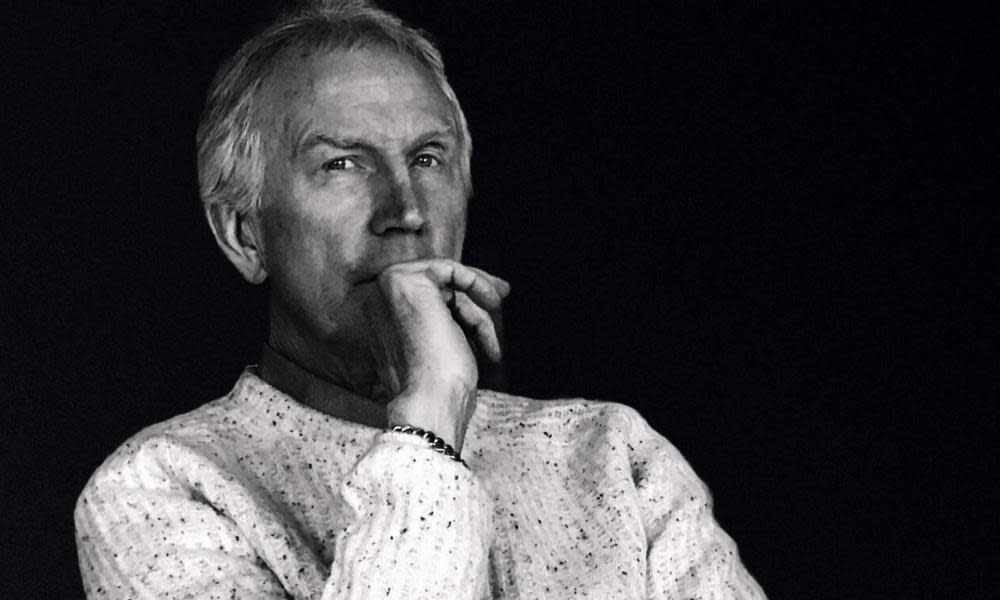Alan Hawkshaw obituary

For five decades Alan Hawkshaw, who has died aged 84, was a hard-working musician and composer, writing the themes for Grange Hill and Channel 4 News, as well as the tense music to accompany the Countdown clock. But few people outside the music business knew his name. “I like it that way,” he told me in 2018, “I would have hated being a celebrity and I like being in the background.”
For much of the time Hawkshaw wrote and recorded library music for the publisher Keith Prowse (KPM, Keith Prowse Music). These albums were not for commercial release but would be circulated within the industry, grouped according to mood or genre.
Film-makers, TV directors and advertisers could license what they wanted for their projects, which was invariably cheaper, quicker and easier than hiring a composer and recording the results. When Clint Eastwood filmed Pale Rider in 1985, he had no idea that the music in one sequence was being used for Channel 4 News. This rather spoilt the dramatic effect for British audiences.
Hawkshaw’s close friend in much of this work was Brian Bennett, the drummer with the Shadows, Cliff Richard’s backing band in the 1960s, who had success in their own right. In recent years Bennett and Hawkshaw had been part of the KPM All-Stars, which played occasional concerts in London venues to a cult following. Hawkshaw loved it, saying: “There is nothing better than playing to an audience who are enjoying it. You get that electricity that you don’t get from records.”
As a result of his connection with Bennett, Hawkshaw was to hand whenever the Shadows wanted some keyboards and, as well as Cliff Richard, he worked with Olivia Newton-John, who was produced by two members of the Shadows. “I was Olivia’s musical director and arranger,” he recalled. “My favourite was I Honestly Love You [1974]. It was a great song, a ballad written for an album not a single, but it was issued as a single and became No 1 in America. I got £30 for doing it, which was the going rate, but I also got an award for best arrangement of the year.”
A tune that Hawkshaw had written in the 60s, Chicken Man, became the theme music for the children’s BBC television soap Grange Hill (1978-89), and the same music was used for the Thames Television comedy quiz, Give Us a Clue, in 1979. In 1971, Hawkshaw wrote the theme for BBC’s Dave Allen at Large, neatly called Blarney’s Stoned, and, later, the theme for ITV’s The New Statesman (1987-94).
His music was used in hundreds of commercials, most notably the long-running adverts for Cadbury’s Milk Tray.
He was also influential in US hip-hop and dance music, creating the dance anthem Here Comes That Sound Again for Love De-Luxe (1979), and the electric organ riff on The Champ (1968), a track made with a group of session musicians he assembled under the name the Mohawks, which has since been sampled for hundreds of songs, including Jay-Z’s Pray (2007).
Born in Leeds, Alan was the son of Walter Hawkshaw, a machine-minder at a print works and a piano player in local pubs, and Lillian (nee Palmer). He attended Bentley Lane school in Meanwood, Leeds, and worked in printing until he was conscripted, serving with the RAF in the UK and Cyprus. Returning to his day job, he also played the piano for semi-professional dance bands.
In 1960 he joined Emile Ford and the Checkmates and was on their hit single Counting Teardrops. When Ford went solo, the band continued as the Checkmates. While playing the Top Ten Club in Hamburg, Hawkshaw met the Beatles at the Seaman’s Mission, and when John Lennon asked him for advice, he suggested they consider a piano player.
After a few years, Hawkshaw settled in London, which was where the work was, making albums for Keith Prowse and playing the piano or Hammond organ on sessions, supplementing the sound for groups such as the Hollies and playing in the orchestra for the soundtrack to the 1967 film Bonnie and Clyde.
For many years Hawkshaw worked with the French star Serge Gainsbourg, appreciating that he was more like a rap artist than a singer. “He’d give me an idea of what he wanted and it would be my job to sketch something out. He didn’t speak English well but he really liked English musicians.”
In May 1968 Hawkshaw backed David Bowie on a BBC session for Radio 1’s Top Gear show. Bowie wanted to fade on an organ solo for In the Heat of the Morning and Hawkshaw kept on playing, thinking the engineers would fade it down. They did not, and it was broadcast with an organ solo nearly as long as the song.
Anxious to give something back, he established the Alan Hawkshaw Foundation in 1983, which with the Performing Right Society has supported underprivileged music students at the Leeds Conservatoire and the National Film and Television School. He received a fellowship from Leeds and in 2021 the British Empire Medal.
After a brief early marriage, Hawkshaw married Christiane Bieberbach in 1968 and they had two children, Kirsty and Sheldon. Christine, his children and five grandchildren survive him.
• William Alan Hawkshaw, musician and composer, born 27 March 1937; died 16 October 2021

 Yahoo News
Yahoo News 
